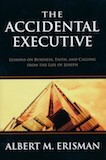Pour Yourself a Cup of Work-Life Balance?
Daily Reflection / Produced by The High Calling
"Observe the Sabbath day by keeping it holy, as the Lord your God has commanded you. Six days you shall labor and do all your work, but the seventh day is a sabbath to the Lord your God. On it you shall not do any work, neither you, nor your son or daughter, nor your male or female servant, nor your ox, your donkey or any of your animals, nor any foreigner residing in your towns, so that your male and female servants may rest, as you do. Remember that you were slaves in Egypt and that the Lord your God brought you out of there with a mighty hand and an outstretched arm. Therefore the Lord your God has commanded you to observe the Sabbath day."
Deuteronomy 5:12
What did you do last week? Where did you spend your time? Perhaps like the old Dolly Parton song, you were working nine to five. According to Dolly, people tumble out of bed before work and pour themselves a "cup of ambition." At the end of the week, we thank God it's Friday and head home for two days of leisure.
Did you catch that? We all work five days a week, but God commanded the Israelites to work for six days, not five. Of course, what we mean when we talk about "work" is not the same as what they meant several thousand years ago, but I'm always struck by the command to work six days each week.
In verse 13, the Hebrew uses two words for "work." The first word, avad, is a verb that means to serve or to cultivate, and it has been part of our purpose from the very beginning. Adam and Eve were placed in the Garden of Eden to cultivate it. Apparently, when a working God creates people, he expects them to work. Later, Moses asks Pharoah to "Let my people go so they can worship God" (Exod. 8:1), and "worship" is the same word in Hebrew, avad. The same word means both work and worship!
The second word for "work" in verse 13 is melakah. It means something like workmanship or profession. In the creation story, God spends six days doing this sort of work. In this sense, our God is a professional creator, but even God takes a break from work, perhaps to remind us that God's identity is more than merely what God does. God is. From the burning bush, God told Moses to say, "I AM WHO I AM has sent you" (Exod. 3:14).
What does all of this mean as we think about work-life balance? The biblical idea of work and Sabbath forces us to rethink our questions. Our culture is looking for work-life balance, as if working and living are two separate activities, but they are not. Certainly, we were not made for constant work. God models this by resting on the seventh day, and God commands us to rest as well. But work is not the opposite of life! Instead, life is made up of work and rest, busyness and quiet, to-do lists and blank slates, doing and being. Whether we work Dolly Parton's nine to five, or eight to five with an hour for lunch, or flexible home hours, or retirement hours—we all need a Sabbath each week to fill our cup with something other than ambition.
QUESTIONS FOR FURTHER REFLECTION
Are you better at doing or being? Do you often wish you had better work-life balance? What do you think is at the root of this desire?
PRAYER
Creator God, thank you for reminding us to take a Sabbath, a quiet day each week to slow down, to focus on you, to worship you without the distraction of our own ambitions. Help us find significance in our daily activities, but remind us that we are more than what we do.
Lord, you know I like to be productive and creative. Help me not to worship my own creativity. Instead, remind me of your incredible creative work that spoke life into the world and still speaks. Amen.
P.S. from Mark Roberts: The Daily Reflections for this week have been written by my friend and colleague, Marcus Goodyear. He has penned this five-day series as part of our focus on the topic of work-life balance. I know you'll find these to be engaging and encouraging. In his "day job," Marcus oversees The High Calling website and digital community in his role as Senior Editor at Foundations for Laity Renewal. He is a teacher, poet, writer, speaker, and top-notch editor, not to mention husband, father, and valued friend. Enjoy Marcus' thoughtful reflections this week, and I'll be back with you on Saturday.








